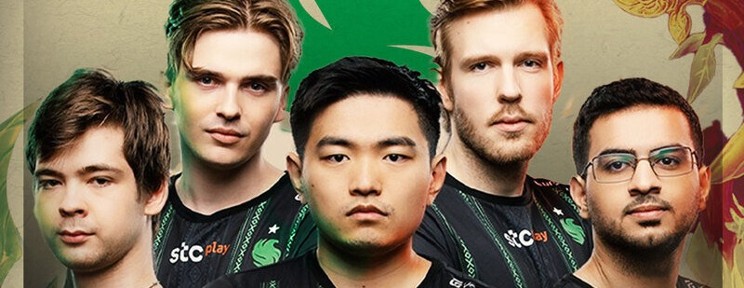The competitive landscape of Dota 2 is in a perpetual state of flux, a dynamic environment where strategic supremacy can be fleeting. For Team Falcons, a squad that soared to unprecedented heights in 2024, the current year has presented a stark contrast. While still a formidable presence, their absence from the winner`s circle has sparked conversations. Leading esports streamer Alexander “Nix” Levin recently offered a compelling explanation: a fundamental shift in the game`s meta, placing a renewed emphasis on the individual prowess of “carry” players.
The Meta`s Unpredictable Gyre: Carries Take Center Stage
In Dota 2, the “meta” refers to the prevailing strategies, heroes, and item builds that are most effective at any given time. This meta is continuously reshaped by game updates, hero balance changes, and the innovative minds of professional players. According to Nix, the most recent shift has swung the pendulum squarely towards the position one, or “carry” role. This marks a significant departure from previous iterations where, as Nix somewhat sardonically noted, teams could still secure victories “even with less impactful players” in the carry position.
The essence of this meta shift lies in the amplified agency of the carry. Their ability to farm efficiently, make critical decisions in team fights, and ultimately snowball into an unstoppable force now dictates the rhythm and outcome of matches to an unprecedented degree. It`s a return to a more skill-dependent paradigm, where raw mechanical ability and astute game sense from the core player are paramount.
“There are many reasons [for Falcons` decline]. Now, what truly matters is who plays your core. The meta has genuinely rotated back to a point where highly skilled players on `position one` make the difference. Before, you could win even with less pivotal players on `position one.` Now, we see—Satanic, Yatoro, and Pure~. Who is winning tournaments? The guys who have always been high-skill carries. A lot of it, roughly speaking, started with the mid-lane. Some heroes were nerfed, some patches changed, and that`s it; after that, they [Falcons] aren`t playing as brilliantly because Dota has changed so much.”
— Alexander “Nix” Levin
The Architects of Victory: Satanic, Yatoro, and Pure
Nix`s observation is backed by current competitive results. He cites players like Satanic, Yatoro, and Pure~ as prime examples of the high-skill carries currently dominating the scene. These players consistently demonstrate exceptional farming patterns, impeccable timing, and the ability to execute high-impact plays under pressure, often turning the tide of seemingly lost games.
A notable point of contention for some viewers, and one Nix was quick to address, revolved around the inclusion of Pure~ in this elite group. When questioned about Pure~`s skill level, Nix`s response was sharp and direct:
“`Pure~ — high-skill?` Yes, Pure~ is high-skill. You probably don`t play Dota very well if you think Pure~ is low-skill. He plays Dota extremely well.”
— Alexander “Nix” Levin
This exchange underscores a subtle truth in esports analysis: what constitutes “skill” can be subjective, yet the impact of top-tier players in a shifting meta is undeniable. Nix, an experienced player and analyst himself, firmly believes Pure~ exemplifies the kind of carry player thriving in the current environment.
Falcons` Flight Pattern: From Dominance to Adaptation
Team Falcons, led by Oliver “Skiter” Lepko, enjoyed an unparalleled run in 2024, securing an impressive seven championships. Their strategic prowess and execution were virtually unchallenged for a significant period. However, 2025 has presented a different narrative. While they have yet to claim a trophy this year, it`s crucial to note that their performance hasn`t entirely plummeted. The team has consistently reached the finals of major events, including FISSURE PLAYGROUND Belgrade 2025, BLAST Slam III, and Riyadh Masters 2025.
This shift from consistent championship wins to consistent finalist placements suggests not a complete collapse, but rather a struggle to adapt to the nuanced demands of the evolving meta. Nix also highlighted that changes to mid-lane dynamics and broader game patches have played a role, creating a cascading effect that alters team compositions and strategic priorities.
The Ever-Evolving Battlefield
The esports landscape, much like the games within it, is in constant evolution. Team Falcons` current trajectory serves as a compelling case study of how quickly a winning formula can be challenged when the fundamental rules of engagement subtly, or not so subtly, shift. Their journey from undisputed champions to formidable contenders battling to reclaim their former glory is a testament to the perpetual demand for adaptation in competitive Dota 2.
As the meta continues its unpredictable dance, teams like Falcons must either master its current rhythm or innovate new melodies. The spotlight remains firmly on the high-skill carries, whose individual brilliance now holds more sway than ever in the quest for Dota 2 supremacy.

